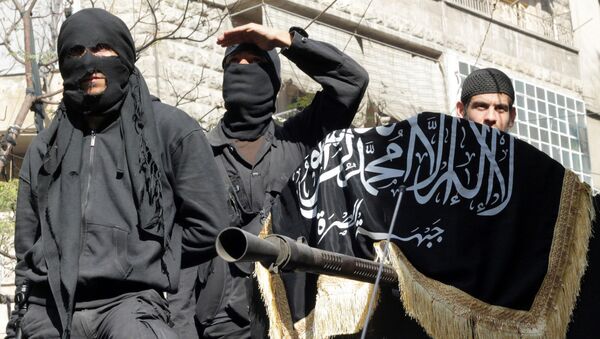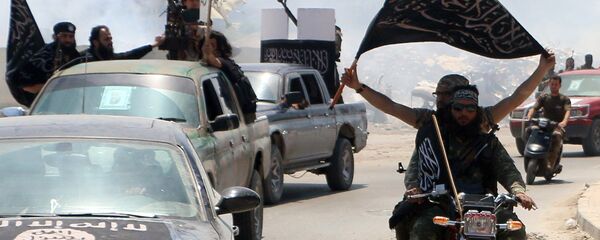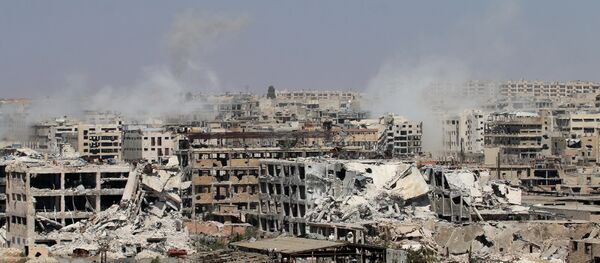According to Reuters, the group's leader, Abu Mohamad al-Golani “made the announcement in a video that was the first public pronouncement to show his face.”
“We have stopped operating under the name of [al]-Nusra Front and formed a new body… This new formation has no ties with any foreign party,” the agency quotes him as saying.
On the very same day al-Qaeda released an audio statement confirming the move, so that al-Nusra “could preserve its unity and continue its battle in Syria.”
“A break with al Qaeda could pave the way for greater support from Gulf states such as Qatar for [al]-Nusra Front, the most powerful faction in Syria's five-year conflict opposing both President Bashar al-Assad and the Islamic State militant group. It could also lead to closer ties between [al]-Nusra and other fighting factions in Syria,” Reuters says.
Many countries and the UN Security Council listed al-Nusra Front as a terrorist organization, thereby excluding it from Syria's February cessation of hostilities.
Russia and the United States are now discussing closer coordination to target the group.
Alexander Ignatenko, the head of the Institute of Religious and Political Studies therefore suggests that the rebranding is aimed at trying to escape from the grip Russia and the US are tightening on the terrorist organizations in Syria.
The political scientist noted that Syria is now witnessing the process of reformatting of terrorist organizations, suggesting that Ahrar al-Sham group, which is not on the UNSC list, will also follow the al-Nusra example and will soon announce breaking of its ties with al-Qaeda, thus confirming that it had been supporting the ties with this terrorist organization.
“The second purpose is to portray itself as a moderate and purely Syrian national opposition,” he told in an interview with Russian online newspaper Vzglyad.
With such a move, he says, they will present to the world the national non-extremist movement, without any links to al-Qaeda, which could be negotiated with.
“However they mean not the negotiations on a possible political solution to the crisis in the area where they are fighting but the negotiations on how to entrench themselves as the voice of the interests of the local Sunni population on the territory which is still under their control,” he explained.
In this way the group can take part negotiating the final settlement of the Syrian crisis. They are trying to portray themselves as “warm and fuzzy,” Ignatenko ironically added.
The expert however did not suggest whether the new movement will be headed by the same leaders or whether the existing hierarchy will be completely replaced by different figures.
He also did not rule out that during the so-called “transformation” the movement will split, with some units still operating under the same name and banner.
On Thursday Russian Defense Minister Sergei Shoigu said that Russia and the Syrian army have established three corridors for civilians wishing to flee the area and one for militants wishing to lay down arms.
Sergei Shoigu said that the fourth corridor for militants wishing to surrender was established in northern Aleppo because the United States failed to provide data on the separation between the al-Nusra Front and the so-called “moderate opposition.”






